Best Home Remedies for Bleeding Gums: What Really Works
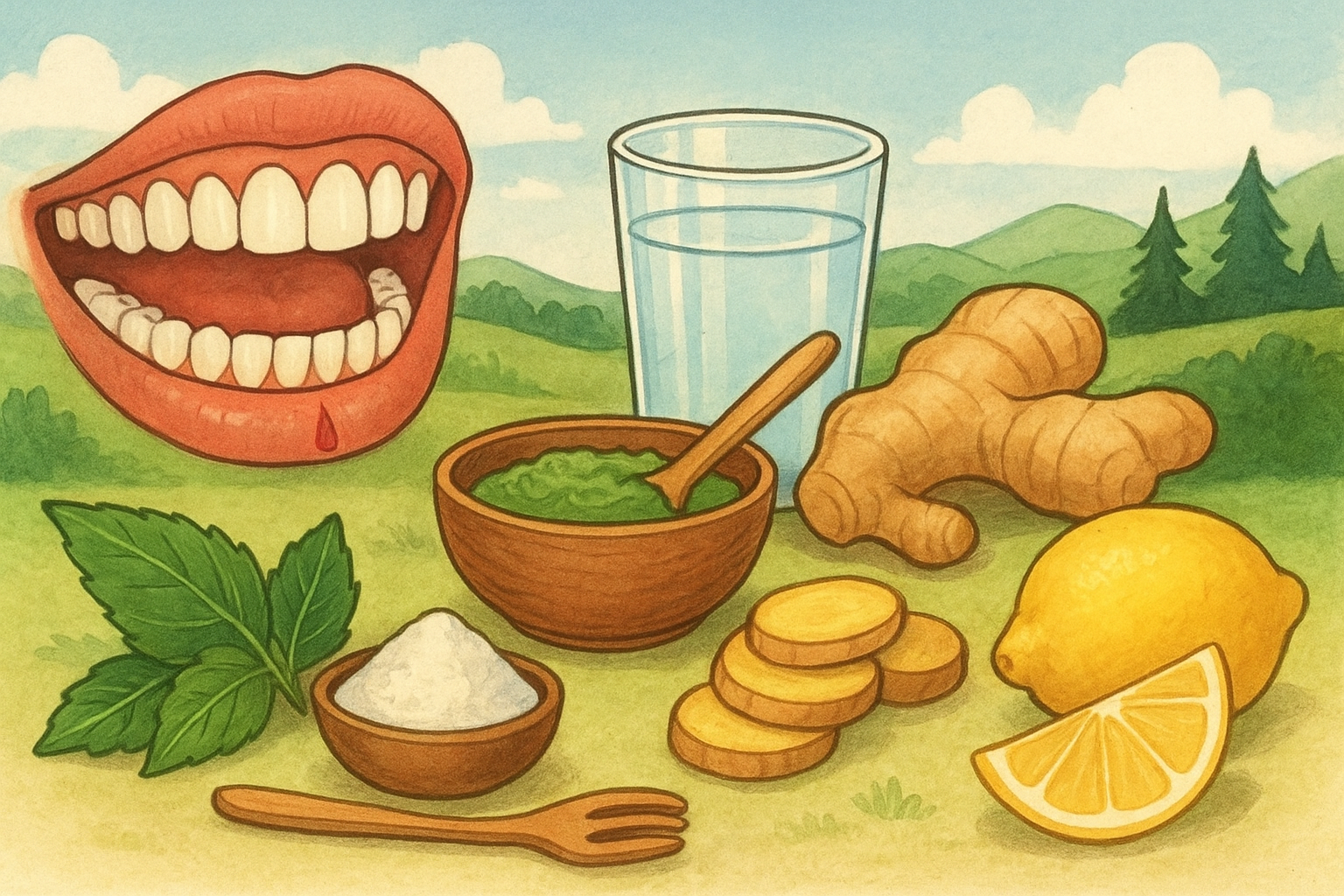
Bleeding gums are one of the most common early signs of gum trouble, yet many people ignore them until they become painful or persistent. Whether you notice blood when brushing, flossing, or eating, it’s your mouth’s way of telling you something is off. The good news is that early gum bleeding can often be managed — and even reversed — with simple and effective home remedies.
In this guide, you’ll learn what causes gum bleeding, how to soothe it naturally, and when it’s time to see a professional. We’ll cover proven remedies, daily habits to protect your gums, and helpful context about related dental issues — like gum inflammation caused by hidden infections, wisdom teeth problems, and untreated tooth pain. Throughout the article, you’ll also find natural internal links that help you explore deeper topics such as dental implants, wisdom teeth, and tooth pain when needed.
Let’s take a closer look at the best home remedies for bleeding gums and how to keep your mouth healthy for the long run.
Understanding Why Gums Bleed
Before applying home remedies, it helps to know what’s triggering the bleeding. Gum bleeding typically starts with inflammation in the gumline. This inflammation, known as gingivitis, is often a result of plaque buildup, but several other factors can worsen the issue.
Common Causes of Gum Bleeding
Bleeding gums may be linked to:
- Poor brushing or flossing habits
- Hardened plaque (tartar) along the gumline
- Hormonal changes
- Vitamin deficiencies, especially vitamin C and vitamin K
- Dry mouth
- Smoking or vaping
- Certain medications such as blood thinners
- Ill-fitting dental appliances
- Wisdom teeth irritation or deep molar infections
Sometimes, gum bleeding occurs alongside jaw discomfort or radiating tooth pain. If you ever feel unsure whether the discomfort is from wisdom tooth pain or a typical toothache, this guide on tooth pain can help clarify the difference.
Understanding the underlying cause helps ensure that the home remedy you choose will truly support healing rather than temporarily mask the symptoms.
Best Home Remedies for Bleeding Gums
Here are the top evidence-based home treatments that support healing, reduce inflammation, and improve gum health.
1. Saltwater Rinse
A classic yet powerful home remedy, saltwater rinses help soothe irritated gums and reduce bacteria.
How to Use It
Mix 1/2 teaspoon of salt in a cup of warm water. Swish gently for 30 seconds and repeat two to three times daily.
Why It Works
Saltwater reduces swelling, improves circulation in the gums, and promotes a balanced oral environment. It’s ideal for mild gum irritation and early signs of gingivitis.
2. Hydrogen Peroxide Rinse (Diluted)
Hydrogen peroxide is known for its antibacterial and antiseptic properties, making it a strong ally against gum bleeding caused by bacterial buildup.
How to Use It
Dilute equal parts hydrogen peroxide (3 percent) and water. Swish gently for 20–30 seconds, then spit. Use only two to three times per week.
Safety Notes
Do not swallow the solution. Avoid daily use, as too much peroxide may irritate tissues.
3. Warm and Cold Compresses
If your gums are sore or swollen, alternating warm and cold compresses can reduce inflammation and improve comfort.
How to Use It
- Apply a warm towel to the cheek for five minutes.
- Follow with a cold compress for two minutes.
- Repeat as needed throughout the day.
This remedy is especially helpful if gum bleeding is accompanied by jaw pain or discomfort related to emerging wisdom teeth. If you want to learn more about how wisdom teeth affect your oral health long term, explore this guide on wisdom teeth.
4. Tea Tree Oil
Tea tree oil has strong antibacterial and anti-inflammatory effects that help soothe bleeding gums.
How to Use It
Add one drop of tea tree oil to your toothpaste before brushing, or mix two drops with carrier oil and apply to the gumline. Use once daily.
Why It Works
Tea tree oil reduces harmful bacteria and may help prevent plaque buildup, addressing one of the main causes of gum bleeding.
5. Turmeric Paste
Turmeric contains curcumin, a compound known for its anti-inflammatory and antibacterial properties.
How to Use It
Mix turmeric with a little water to form a paste, then apply it to your gums. Leave it on for a few minutes before rinsing with warm water.
Benefits
Turmeric helps calm inflamed gum tissues, reduce redness, and support healing naturally without harsh ingredients.
6. Oil Pulling
Oil pulling, an ancient Ayurvedic practice, helps remove bacteria and improve overall gum health.
How to Do It
Swish one tablespoon of coconut, sesame, or sunflower oil in your mouth for 10–20 minutes. Spit out and rinse with warm water.
Why It Works
Oil attracts and traps bacteria, reducing plaque and buildup around the gums. Consistent practice may noticeably reduce gum bleeding within a few weeks.
7. Aloe Vera Gel
Aloe vera is widely used for healing skin irritation, but it also works well for calming bleeding gums.
How to Use It
Apply pure aloe vera gel directly to your gums. Gently massage and leave it on for a few minutes before rinsing.
Benefits
Aloe vera reduces inflammation, promotes healing, and is especially helpful if your gums feel tender or raw.
8. Vitamin C and K Boost
Bleeding gums are sometimes related to deficiencies in vitamin C or K.
How to Increase Intake
- Eat more citrus fruits, strawberries, bell peppers, spinach, and broccoli
- Consider supplements if recommended by a healthcare provider
Why It Helps
Vitamin C strengthens the gums and blood vessels, while vitamin K supports better blood clotting. Together, they help reduce gum bleeding naturally.
9. Improved Brushing and Flossing Technique
Sometimes gum bleeding is simply caused by brushing too hard or flossing too aggressively.
Best Practices
- Use a soft-bristled toothbrush
- Brush in gentle circular motions
- Replace your toothbrush every three months
- Floss with slow, controlled movements rather than snapping the floss
Better technique helps reduce gum irritation and prevent future bleeding.
10. Anti-Inflammatory Diet
What you eat significantly affects your oral health. A diet rich in whole, anti-inflammatory foods helps reduce gum swelling and bleeding.
Foods to Add
- Leafy greens
- Nuts and seeds
- Fatty fish
- Beans
- Berries
Foods to Limit
- Sugary snacks
- Processed foods
- Carbonated beverages
- Excessive caffeine
A healthier diet not only reduces gum bleeding but also strengthens your immune system, helping your body fight oral bacteria more effectively.
When Home Remedies Are Not Enough
While home remedies work well for early-stage gum bleeding, you should seek professional care if:
- Bleeding persists for more than a week
- You experience severe swelling or pus
- You have loose teeth
- You feel significant tooth pain
- You notice bleeding on one side only
Sometimes gum infection or inflammation hides behind deeper dental issues, such as impacted wisdom teeth, chronic tooth pain, or bone loss.
Should you decide to take the next step, it is always wise to schedule consultation early so issues like gum infection or bone loss can be caught before they worsen.
How to Prevent Gum Bleeding Long Term
Bleeding gums are avoidable with consistent oral hygiene and smart habits. Here’s how to maintain strong, healthy gums:
1. Brush Twice Daily
Use a soft-bristled brush and fluoride toothpaste. Brush gently to prevent irritation.
2. Floss Daily
Flossing removes plaque where a toothbrush cannot reach.
3. Stay Hydrated
Water helps maintain saliva flow and wash away bacteria.
4. Replace Your Toothbrush Regularly
After illness or every three months.
5. Eat for Oral Health
Choose whole foods that support gum healing and reduce inflammation.
6. Avoid Tobacco
Smoking slows gum healing and worsens gum bleeding.
7. Get Regular Checkups
Professional cleanings remove hardened plaque that home remedies cannot.
Final Thoughts
Bleeding gums are an early warning sign, but with the right home remedies and daily habits, you can stop the bleeding, soothe inflammation, and prevent more serious gum disease. Whether it’s a simple saltwater rinse or a deeper approach like improving your diet or technique, small changes lead to healthier gums and a stronger smile.
If your gum problems persist or if you’re dealing with deeper issues such as wisdom tooth discomfort, tooth pain, or missing teeth, exploring options like dental implants, understanding cost guides, or booking a consultation early can help protect your long-term oral health.
Taking care of your gums today helps you protect your smile for life.

Impacted Wisdom Teeth Symptoms You Shouldn’t Ignore
July 1, 2025
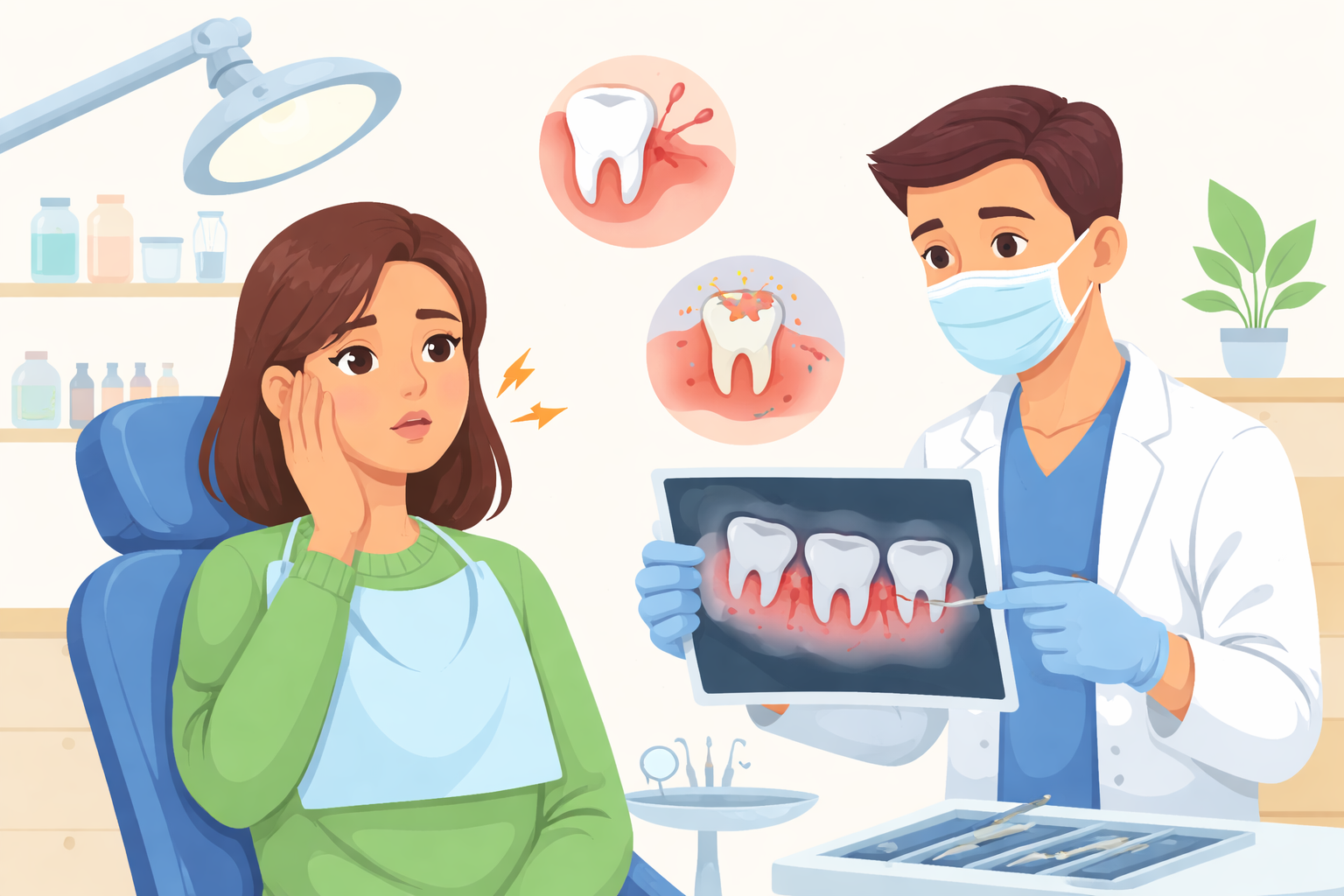
Signs Your Wisdom Tooth Needs to Come Out
January 19, 2026
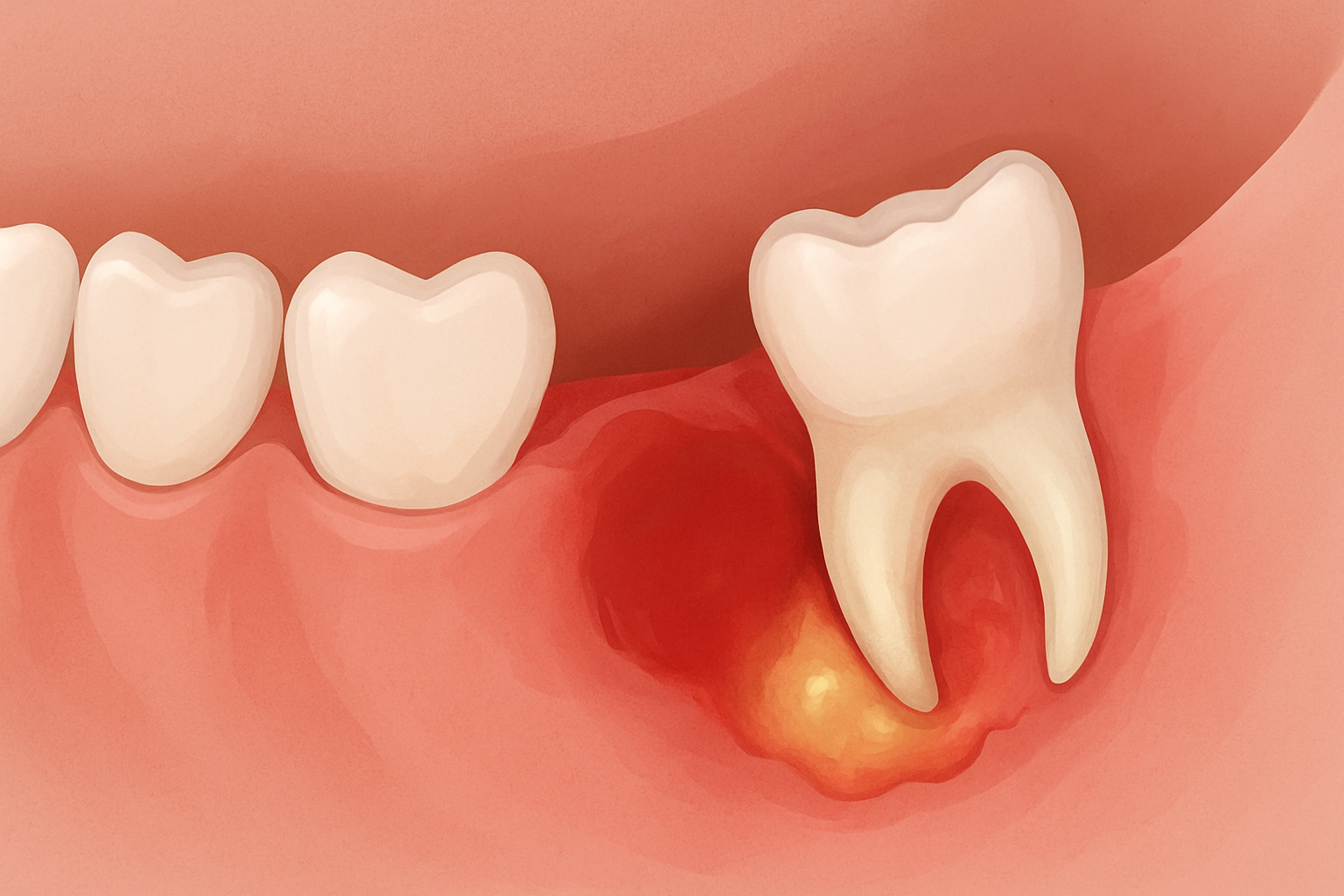
How to Tell If Your Wisdom Tooth Is Infected
November 21, 2025
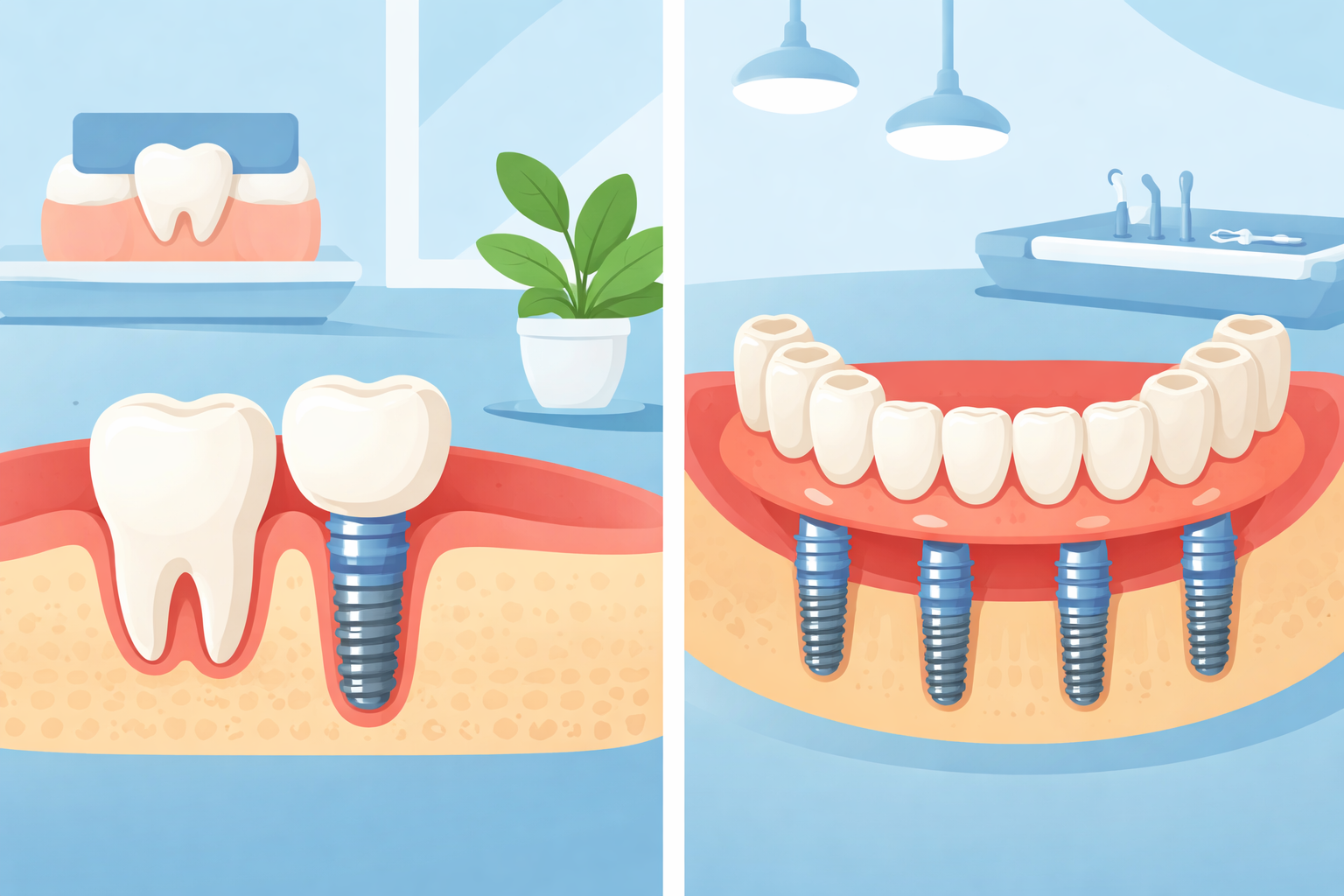
Single-Tooth vs. Full-Arch Dental Implants
January 7, 2026
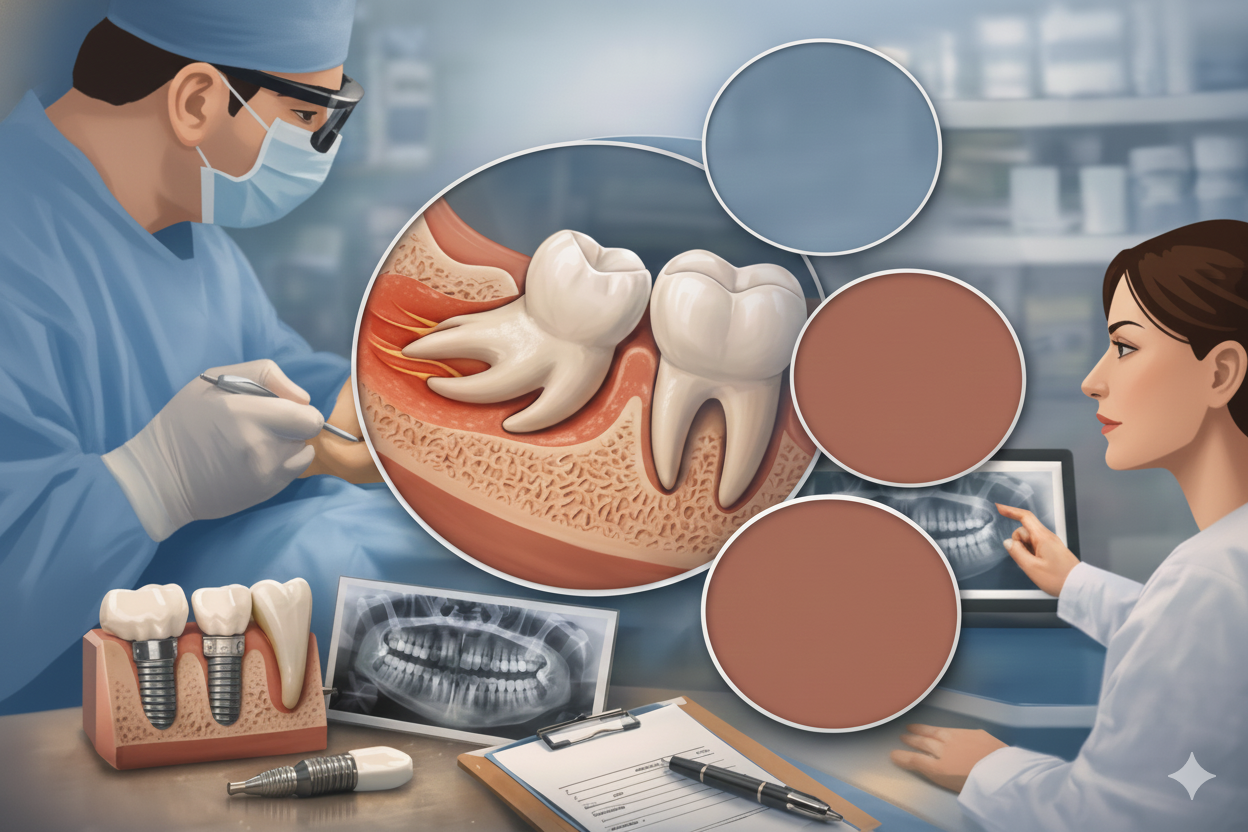
How Rare Are Serious Wisdom Tooth Complications, Really?
December 18, 2025